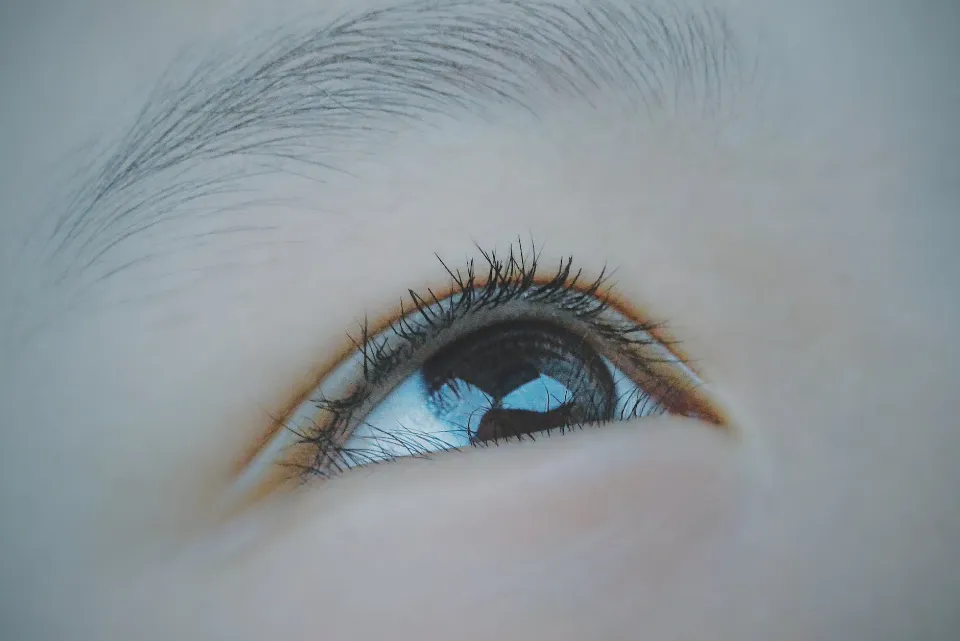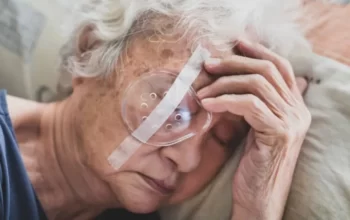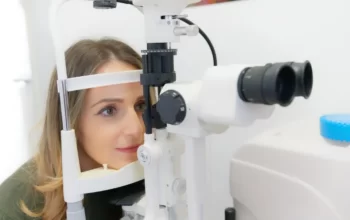
Once a baby is born, their eye color may change. The most noticeable changes in eye color occur between birth and 9 months of age, but the color of a child’s eyes may continue to darken until they are about 3 years old. The color of your eyes won’t typically change after this point.
What is Eye Color?
The iris, the colored part of the eye, contains melanin, a pigment that serves as the body’s natural coloring agent in organic tissue. The color of the eyes gets darker as they contain more pigment. Because the iris contains the least amount of melanin, eyes that are green, blue, or gray are the lightest in color.
The genetic material that each parent contributes determines the color of the eyes that a person is born with. It is impossible to predict the color of a child’s eyes because the genes from the parents can interact in unexpected ways. Children’s eyes may be entirely different from their parents’ in terms of hue. However, the likelihood of the child having brown eyes is higher if both parents have them.
Three genes, of which two determine the most prevalent eye colors, determine the color of human eyes. The rarer eye colors are the result of the third gene. The genes that produce brown eyes will prevail over the genes that produce green eyes, and so on, because darker eye colors tend to predominate.

How Eye Color Can Change
The eyes are likely the most intricate organ in the human body after the brain. They can bring our world into focus, bend light, and grant us vision. The color of the eyes, however, is what many of us find most fascinating about them. Some individuals might think that their eye color has altered over time. This raises the question of whether or not eye color changes with aging.
Does Eye Color Change With Age?
The majority of people’s eye colors reach their full maturity during infancy, so that depends. Do you recall how some newborns have steel blue eyes at birth that gradually change to another color? The development of fully mature eyes is demonstrated by that. In some cases, an individual’s eye color is predetermined from birth.
A small percentage of people actually have color-changing eyes. Eyes can naturally get lighter or darker as we age.
What Causes a Slight Change in Perceived Eye Color
Age
As children grow, their eyes frequently become darker despite typically being born with light blue or gray eyes. This is due to the fact that your genes and the amount of melanin in your body determine the color of your eyes. The amount of melanin around your pupil rises as you get older, darkening the eye. However, 10-15% of Caucasian eyes change to a lighter color as they age, as pigment in the iris changes or degrades.
Exposure to the Sun
Melanin production can be activated through solar exposure, meaning that a prolonged time exposure to the sun could make your eyes darker.
Emotions
Your pupil size and iris color can change in response to certain emotions. When you are happy, angry, or sad, your body releases a hormone that makes your pupil size change. Your eyes usually get brighter when you’re happy or angry, while when you cry, they turn red and appear to be brighter.

Clothing and Makeup
Your eyes can look more vibrant and brighter by wearing darker clothing, colored eyeliner, or colored eyeshadow on your eyelids. Your eyes will undoubtedly pop a little bit more than usual, but this is just a matter of perception and not reality.
Your Diet
For the eyes, the adage “you are what you eat” is absolutely true! Your eye color will depend on the type of diet you follow. Here are some of the foods that change your eye color if consumed often:
- Spinach: Its high iron content will make your eyes look younger and shine more!
- Organic honey: Regular consumption of honey could make your eye hue lighter and brighter.
- Fish: If you eat fish, it can change your eye color more strongly and, depending on how much you eat, it might be permanent.
- Adding olive oil to your diet, according to many, could alter the color of your eyes.
- Onions: Regular consumption of onions has been linked to subtle changes in eye and skin color.
- Nuts: Add different nuts to your diet and your eyes could gradually get a lighter color.
*Note: Roasted nuts won’t affect your eyes since their nutrients (what might change your eye color) have already been destroyed by exposing them to high temperatures.
Tea made with chamomile and uva ursi relaxes the eyes and alters pupil size, giving the appearance of a different color—usually a warmer hue—in the eye.
Your Health
Your eye color can also change to a yellowish or greenish shade when you are unwell or if you have an eye disease such as:
- An issue with the third cranial nerve is known as Horner’s syndrome. The disease may result in the affected eye(s) becoming lighter in color.
- Fuch’s Heterochromic Uveitis: A mild, long-lasting chronic inflammation of the front of the eye.
- The loose pigment granules from pigmentary glaucoma accumulate on the back of the cornea because the pigment on the iris’s back is disrupted. The front of the iris may also become accumulated with this loose pigment, changing its color. The color of the eyes may also be impacted by glaucoma medication.
Importance of Getting Good Contacts
While it may be possible to obtain colored contact lenses without a prescription, there are risks associated with doing so and wearing lenses that you obtained from an unlicensed and possibly dangerous source. These include but are not limited to:
- Scratched cornea.
- Vision problems.
- Itchy eyes.
Whatever your motivation for purchasing decorative contact lenses, make sure they need a prescription and are FD&C-approved. By doing this, you’ll have a lower chance of using them without having any issues.

How to Safely Change Your Eye Color
Some urban legends hold that honey and tepid water can change a person’s eye color, but there is no scientific evidence to suggest this is even remotely possible. Contrary to what some websites claim, applying honey or tap water to the eyes could result in an infection because neither substance is sterile.
Decorative contact lenses, which can only be obtained with a prescription from a qualified optician, are the best option if you want to change the color of your eyes. Take care of the lenses, clean them regularly, and get yearly checks for your vision, and you can safely enjoy your new eye color.



